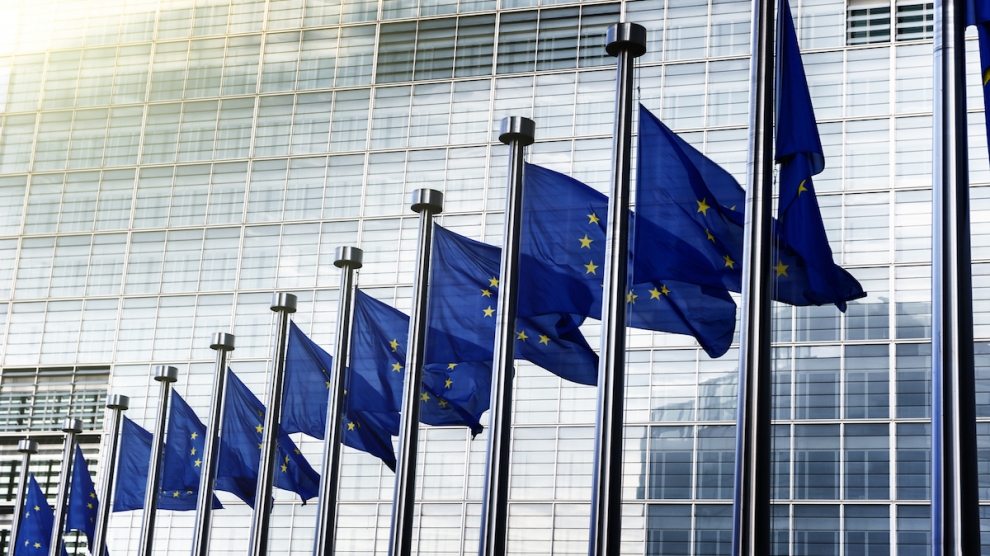The European Commission has formally revealed its proposals to drive forward EU enlargement, by making the accession process more credible, with a stronger political steer, more dynamic and predictable.
The Commission has issued the proposals as a way of providing a credible EU perspective for the Western Balkans while reassuring existing member states that safeguards will ensure a level playing field for would-be members.
In October, France blocked the start of formal EU accession negotiations with Albania and North Macedonia against the wishes of most other EU members, and despite a Commission assessment that both Western Balkan countries had done the necessary homework. North Macedonia has changed its name at the European Union’s behest, while Albania is conducting sweeping judicial reforms.
“European Union enlargement to the Western Balkans is a top priority for the Commission,” said European Commissioner for Neighbourhood and Enlargement, Olivér Várhelyi. “We are working on three tracks: Firstly, we propose concrete steps on how to enhance the accession process. While we are strengthening and improving the process, the goal remains accession and full EU membership. Secondly, and in parallel, the Commission stands firmly by its recommendations to open accession negotiations with North Macedonia and Albania and will soon provide an update on the progress made by these two countries. Thirdly, in preparation of the EU-Western Balkans Summit in Zagreb in May, the Commission will come forward with an economic and investment development plan for the region.”
The Commission believes that the accession process needs to build on trust, mutual confidence and clear commitments by the European Union and the Western Balkans. Credibility should be reinforced through an even stronger focus on fundamental reforms, starting with the rule of law, the functioning of democratic institutions and public administration as well as the economy of the candidate countries. When partner countries meet the objective criteria, member states shall agree to move forward to the next stage of the process, respecting the merits-based approach.
Similarly, the Commission feels that the political nature of the accession process requires a stronger political steer and engagement at the highest levels. The Commission is therefore proposing to increase the opportunities for high level political and policy dialogue, through regular EU-Western Balkans summits and intensified ministerial contacts. Moreover, existing member states should be involved more systematically in monitoring and reviewing the process. More focus will be placed on key political issues and reforms, while Inter-Governmental Conferences will provide stronger political steering for the negotiations.
To inject further dynamism into the negotiating process, the Commission is also proposing to group the negotiating chapters in six thematic clusters: fundamentals; internal market; competitiveness and inclusive growth; green agenda and sustainable connectivity; resources, agriculture and cohesion; external relations. Negotiations on each cluster will be opened as a whole – after fulfilling the opening benchmarks – rather than on an individual chapter basis. Negotiations on the fundamentals will be open first and closed last and the progress on these will determine the overall pace of negotiations. The timeframe between opening a cluster and closing the individual chapters should be limited, preferably within a year fully dependent on the progress of the reforms.
The Commission aims to make the process more predictable by providing greater clarity on what the EU expects of enlargement countries at different stages. It will make clearer what the positive consequences progress on reforms can bring, and what the negative consequences will be when there is no progress.
To encourage demanding reforms, the Commission will better define the conditions set for candidates to progress and will provide clear and tangible incentives of direct interest to citizens. Incentives could include accelerated integration and “phasing-in” to individual EU policies, the EU market and EU programmes – while ensuring a level playing field – as well as increased funding and investments. The more candidates advance in their reforms, the more they will advance in the process. Equally, the Commission proposes more decisive measures proportionally sanctioning any serious or prolonged stagnation or backsliding in reform implementation and meeting the requirements of accession process. Negotiations could be put on hold in certain areas, or in the most serious cases, suspended overall, and already closed chapters could be re-opened; benefits of closer integration, like access to EU programmes, could be paused or withdrawn, and the scope and intensity of EU funding could be adjusted downward.
The Commission hopes that member states will endorse the proposal, in parallel with the opening of accession negotiations with North Macedonia and Albania, ahead of the European Union-Western Balkans Summit in Zagreb, set for May 6-7.






[…] week the Commission revealed its proposals to drive forward EU enlargement by making the accession process more credible, with a […]